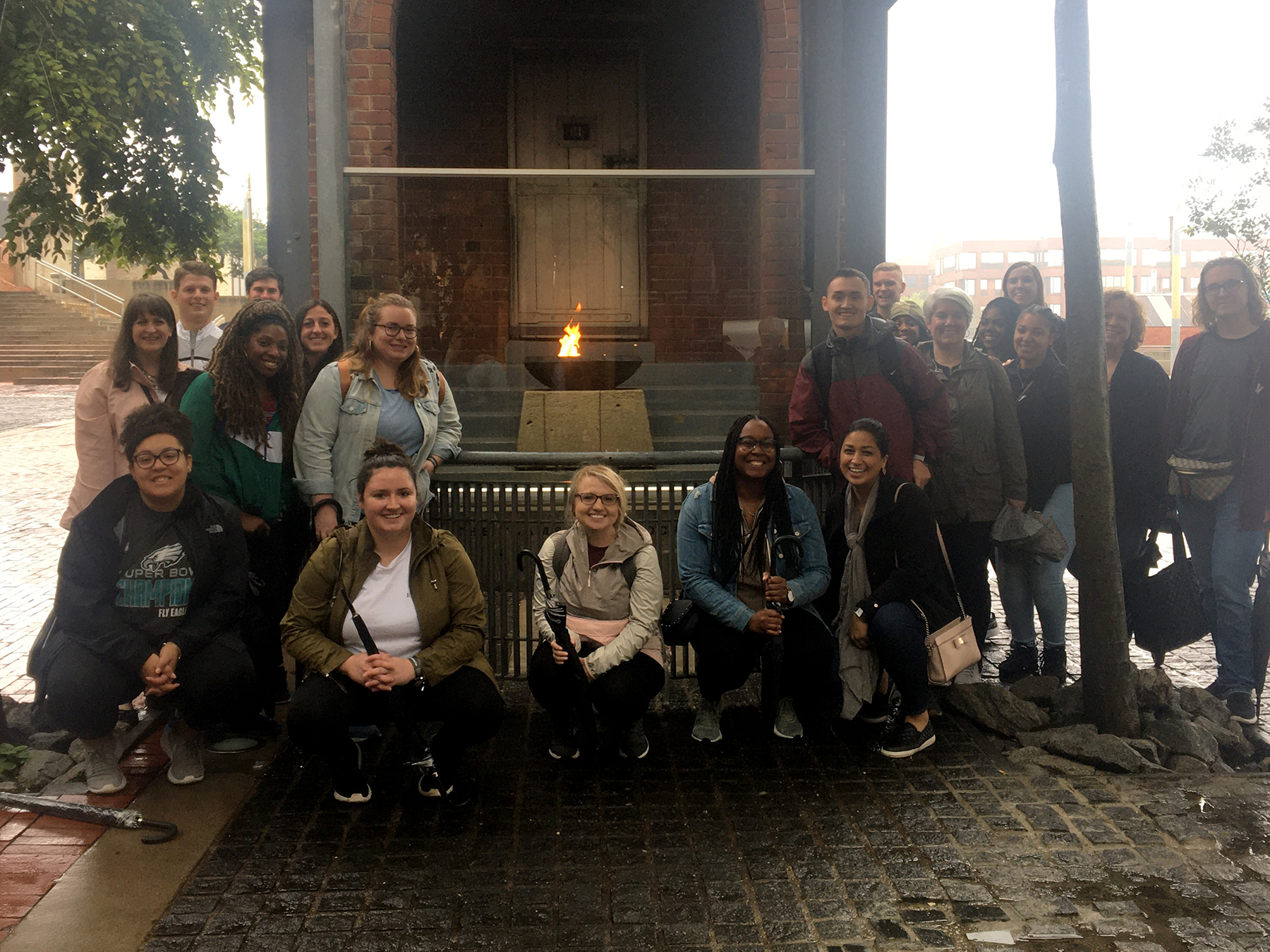Elon Law students traveled to Johannesburg and Cape Town as part of a fall trimester Prisoners’ Rights course that took them to American and South African penitentiaries, including the now-closed Robben Island, where Nelson Mandela spent nearly two decades as a prisoner.
If the United States and South African governments expect a large majority of their prison populations to one day return to society, what responsibilities do they have in their treatments of incarcerated people?
And how has history shaped the way both Americans and South Africans view prison populations?
Eighteen students in a fall trimester “Prisoners’ Rights” course traveled to South Africa in December to explore these questions as they contrasted the evolution of both nations’ penal systems.
Led by Assistant Professor Patricia Perkins and accompanied by Jennifer Mencarini from the Office of Career & Student Development, the class visited Johannesburg and Cape Town to meet with a former law clerk to Constitutional Court justices and staff members for the Judicial Inspectorate of Correctional Services, as well as human rights attorneys and prisoner rights advocates.
Students also visited Robben Island off the coast of Cape Town where the late Nelson Mandela – a Nobel Laureate and former South African president – spent a majority of his time incarcerated as a political prisoner. And for the first time in the three-year history of the program, Perkins secured a visit to tour inside the Women’s Prison at Kjsoi Manturu Prison.
Prior to their studies in South Africa, the class visited the Federal Correctional Complex in Butner, North Carolina, and welcomed a managing attorney from North Carolina Prisoner Legal Services. Both programs complemented additional readings and assignments that offered students a comparison of prisons in both nations.

Perkins said she organized several programs in which students could immerse themselves in South African culture with one-on-one conversations with attorneys, prisoners, and community members whose views shaped a deeper understanding of the ways in which the two nations approach crime and punishment.
“There’s never a moment that’s not impactful,” Perkins said. “Moments just impact students in different ways. I’m really lucky to be able to do this, to travel with students, and I appreciate how they are very open to the experience and very intentional about making the most of their time here.”
That is exactly what appears to have happened.
“Culturally speaking, it’s made me a more humble person, and it’s made me grateful for what I have,” said Elon Law student Chris Schroeder L’20. “The people we met shared that they may not have the newest, nicest, latest-and-greatest things, but they do have food. They have water. They have each other and their families. That’s all they really needed. And that was a powerful moment to me.”
Read some of the reflections offered by Elon Law students who took part in the course.
- “My interest in this course stemmed from my passion for advocating for incarcerated persons, an interest in studying abroad, and in studying South Africa’s constitutional history. It reminded me of the overwhelming privilege I carry as a law school student and the impact I can make as an attorney. One of the most memorable experiences would have to be our class visit and tour of a female prison in Johannesburg. We had the opportunity to speak with several of the women about their life before prison. They shared very powerful testimonies that they did not have to share with strangers, about the crimes they committed, and contributing factors. It proved that life is a very complex journey and sometimes a little compassion, even for those condemned to prison, could go a long way.” – Kaila Baccas L’20
- “Two takeaways from South Africa stay with me all the time. First, one’s circumstances have little to do with one’s joy. In Kliptown, a Soweto ‘slum,’ families live in tin shacks with no running water. Community members walk on dirt paths and share porta-johns. Yet in the heart of that community is a learning center for the Kliptown children. There they work on their reading, writing, computer skills, and dignity. The children hold their heads up, working toward the day when they too will leave Kliptown for college. Second, prison isn’t the end. In the women’s prison we met women who believed in rehabilitation, in second chances, in freedom. The joy expressed by the women we met was palpable. The future is bright, and there is always hope.” – Robin Wintringham L’20
- “I am currently the vice president for The Innocence Project and am very dedicated and passionate about prisoner rights and prison reform. This trip and class was life-changing. What stuck out to me the most was touring a women’s prison in Pretoria. Inmates led the tour and were so vulnerable with us. Also, one of the highlights on the trip was visiting Kliptown. We were able to learn more about the township, and the locals were so welcoming. This trip put a lot of things into perspective. It just showed that as a future attorney, I could use my platform to combat social injustice.” – Alisha Harris L’20



